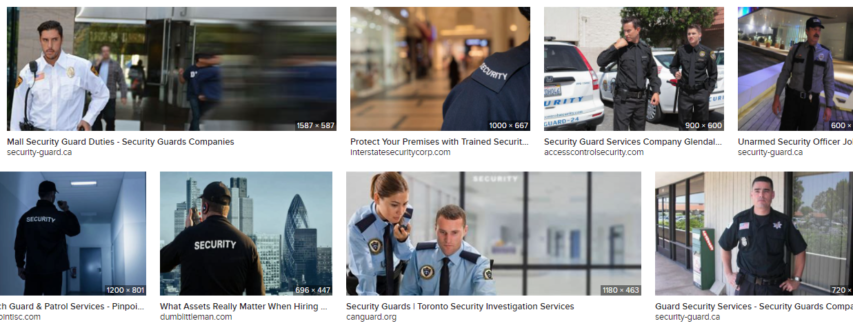As a teenager, I worked several months as a security guard. In the 1970s in Ontario, to work as a security guard you basically needed to be physically fit (to a not-very-high standard), to pass a police background check and to be 18 or over. The jobs I worked were usually overnight shifts at upscale apartment buildings, industrial facilities and fill-in shifts at retail malls to cover for regular security staff vacations (plus one really interesting midnight shift on a ship docked in Toronto harbour). I think I was paid $3 per hour, and 99% of the time the work wasn’t worth any more than that. It’s that 1% of situations where the company hiring security guards might wish they’d invested in better-trained staff. According to Joshua Hind‘s article in The Line, the standards for security guards have been improved in the many years since my time, but that 1% is still a big issue:
While some of the best minds in the field of crowd management and event safety weigh in on the probable causes of the crowd surge, a new article in Rolling Stone has turned a spotlight on the security guards, and the culpability of private security in general, a high turnover, low-wage business focused on filling orders with warm bodies, seemingly regardless of their actual experience or competency. In Canada, security work is one of the easiest routes to employment for young people and particularly recent immigrants with little Canadian work experience, but, when it comes to live events, it’s also an often impossible mix of customer support, crowd management, law enforcement, and emergency medical services that requires years of training and on-the-ground experience to do well.
The apparent failures of this type of security, which is often referred to as “contract security” (not be confused with “private security”, which usually means expensive bodyguards), are not unique to Houston. I’ve been working in large public events for more than 20 years and contract security has always been one of the great planning dilemmas. If you want to get insured, you need lots of security, but every one of those guards must be treated as part asset and part liability.
Event sites, especially festivals with multiple stages, are expansive (the site in Houston was over 1,000,000 square feet in total space), and a well-designed event site, just like a well-designed building, needs plenty of entrances and exits, each of which must be adequately staffed. Guards are needed in front of the stage, in the crowd, at backstage access points, and around critical infrastructure. On top of all that you also need a team of roving guards to patrol the site looking for issues. Add it up and a large event site could have dozens or hundreds of security guards doing a variety of jobs, all of which fall under the catch-all description of “security”. On a big summer weekend at the height of event season, a large city like Toronto might have thousands of guards working dozens of sites. How do you find that many good people who can bear the responsibility of preserving public safety? Generally, you don’t.
It only requires a two-week commitment and a little patience to become a security guard in Ontario. So long as you have a clean criminal record, you can sign up for the required training: 40 hours on law and security, plus another 30-40 hours of first aid. This training is often performed by the very companies that do the hiring, which can greatly affect priorities in accurate skills testing. Hit all those marks and mere weeks after deciding to become a security guard you could be faced with a horde of concertgoers busting through the fence you’ve just been ordered to protect.
When I started in live events, it was all on the technical side, setting up lighting, sound and stages, and I didn’t pay much attention to what happened on the other side of the crowd barrier. About 15 years ago I started working on Nuit Blanche, Toronto’s overnight outdoor art event, and it was during those long nights watching hundreds of thousands and then millions of people that I developed a sense of how they act in large groups and how unpredictable they can be. This isn’t meant to sound like a superpower, it’s just a honed instinct. It took me well over a decade of steady work and constant observation to develop some ability to sense when a crowd might turn ugly. That experience can’t be replicated with two weeks of training, but that’s exactly what’s often expected of security guards.




